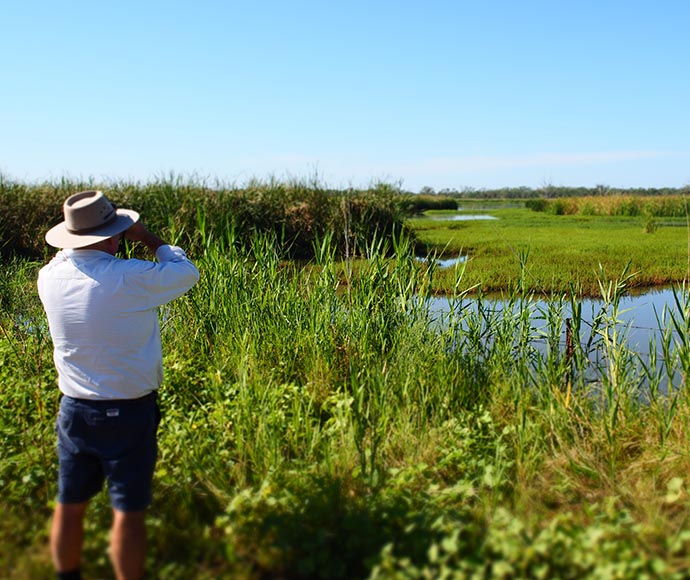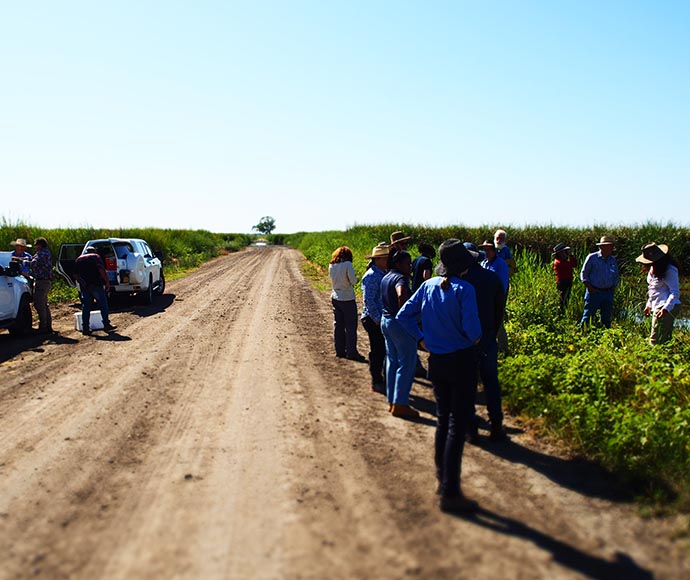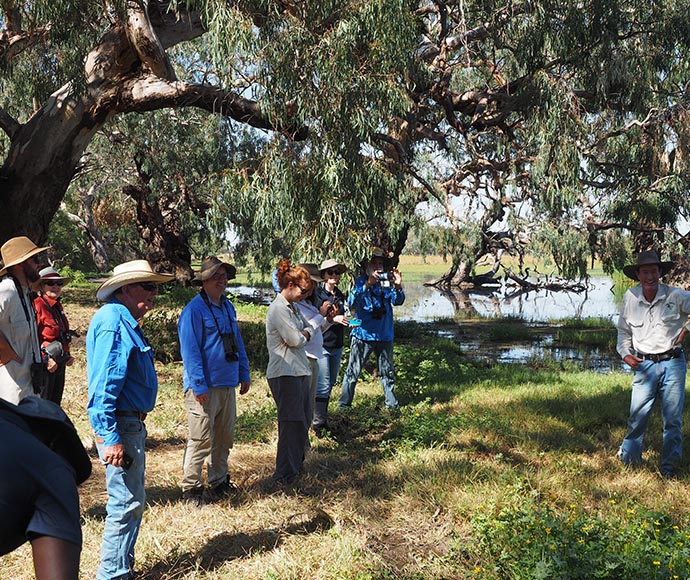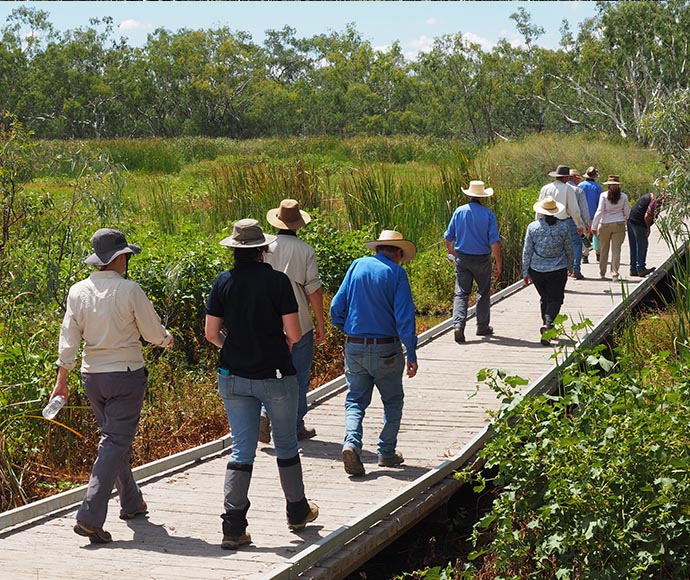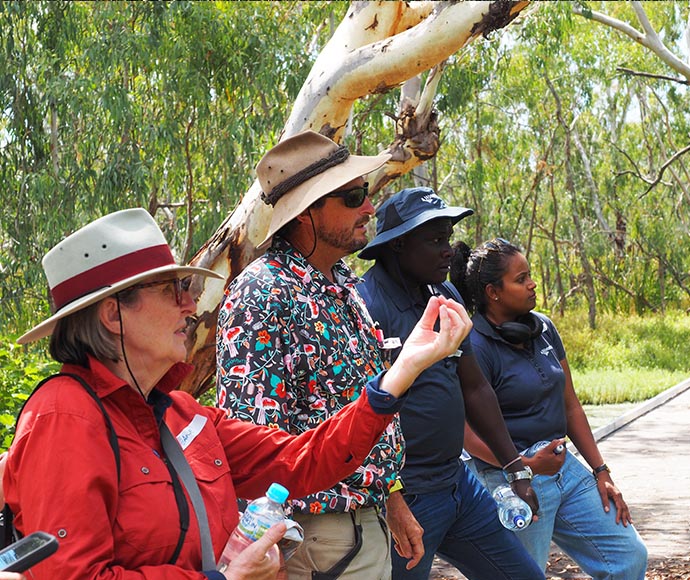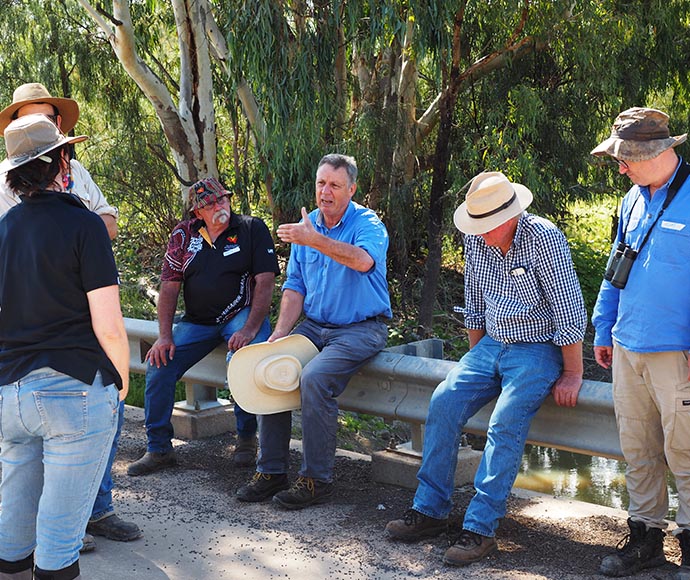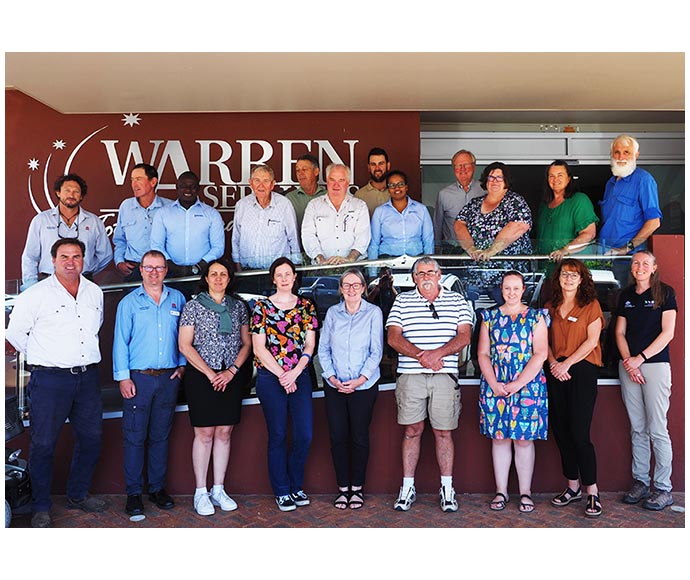On Thursday 16 March 2023, the Macquarie–Cudgegong Environmental Water Advisory Group (EWAG) met in Warren to reflect on the recent environmental outcomes in the catchment and discuss potential priorities for the 2023–24 water year. The Environmental Water Advisory Group also took part in a field trip to parts of the Macquarie Marshes the day before the meeting.
This was the inaugural meeting of the freshly appointed Environmental Water Advisory Group, including some new members. These were community representatives from the Cudgegong and Macquarie reaches, and First Nations representatives. Environmental Water Advisory Group members are ministerially appointed for a 5-year term.
Catchment conditions
After recent floods and the conclusion of Flood Mitigation Zone (FMZ) operational releases in February 2023, drier conditions are forecast for the Macquarie catchment for April to June 2023.
Burrendong Dam dropped below full supply level for the first time in 15 months in early February 2023. The Flood Mitigation Zone is space above the full supply level in Burrendong Dam that is reserved to capture water for flood mitigation.
The Flood Mitigation Zone releases over this period contributed to significant inundation in the Macquarie Marshes, which peaked at an estimated 232,000 hectares in October 2022. Warm conditions and reduced inflows since have reduced this area to core wetlands covering about 55,000 hectares in early March 2023. Outflows from the Macquarie Marshes are currently connecting with the Barwon River, with an estimated 1,850 gigalitres reaching the Barwon River via the Macquarie River during Flood Mitigation Zone operations.
As of 16 March, Burrendong storage was at 95.2%, and Windamere storage was at 98.1% capacity.
The Bureau of Meteorology outlook indicates a dry and warm autumn is likely.
Recent watering events and outcomes
To meet objectives for colonial waterbirds, environmental water managers ordered a flow in early March 2023 when Burrendong Flood Mitigation Zone operations concluded. This flow provided a gradual recession of water levels in the Macquarie Marshes. This supported the final stages of the remaining ibis and egret colonies, allowing fledglings to reach flyer stage and leave the nest.
The colonial waterbird breeding event in the Macquarie Marshes this summer is the most successful in recent records, with 197,000 nests recorded. This includes 9 large-scale egret and nankeen night heron colonies (>1,000 nests), 4 large-scale ibis colonies (>5,000 nests), and the largest colony of royal spoonbills ever detected in the Macquarie Marshes (at least 1,000 nests).
This is the fifth large-scale colonial waterbird breeding event in the Macquarie Marshes in the last 23 years (2000, 2010, 2016, 2021, 2022). Successful breeding supports recovery of colonial waterbird populations, which are in decline.
Proposed watering events to end of June 2023
The Environmental Water Advisory Group discussed 2 watering proposals for the remainder of the water year:
- A request from Bogan Shire Council to reimburse Council for water delivered to the lower Nyngan Weir pool in February 2023 for water quality maintenance following a small-scale native fish kill.
- To provide an autumn pulse flow for native fish to move upstream from the unregulated Lower Macquarie and Macquarie Marshes into the regulated reach over April and June 2023.
No decision was made, and further information was requested.
Preliminary watering discussions for 2023–24
Environmental Water Advisory Group members discussed the approach to drafting preliminary watering objectives for the 2023–24 water year. Considerations included environmental needs in the post-flood period, statutory requirements, climate change, carryover strategies and risk appetite following the drought of record in 2017–19, and how to best achieve drought resilience for the environment in an uncertain future.
Watering objectives and strategies for 2023–24 will be discussed in more detail at the next Environmental Water Advisory Group meeting in May 2023.
